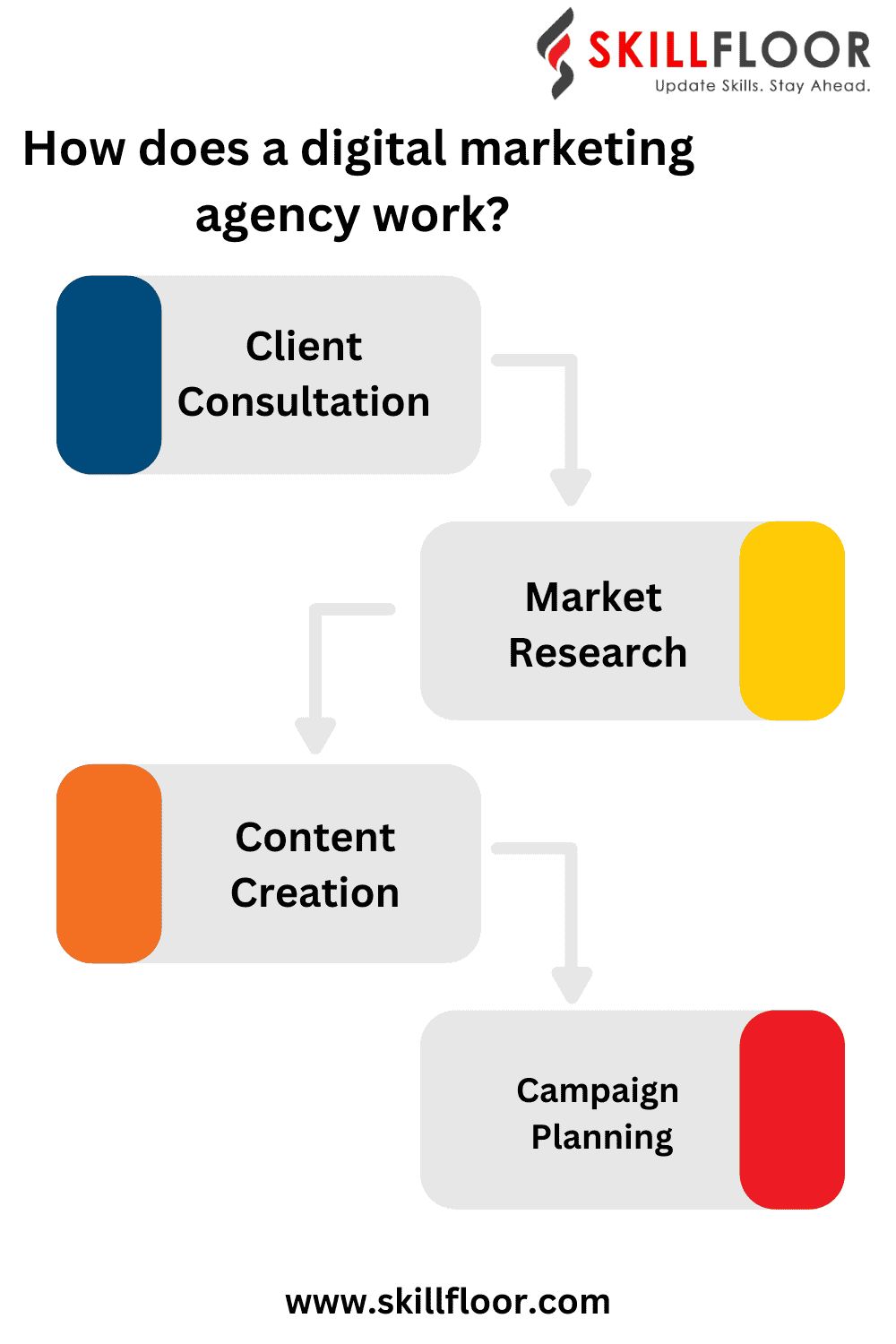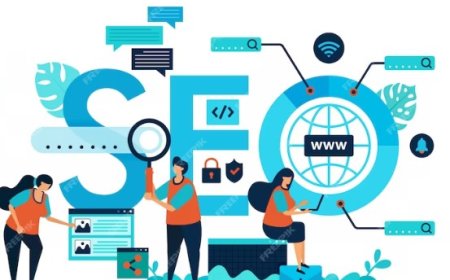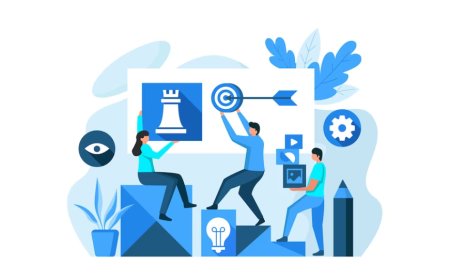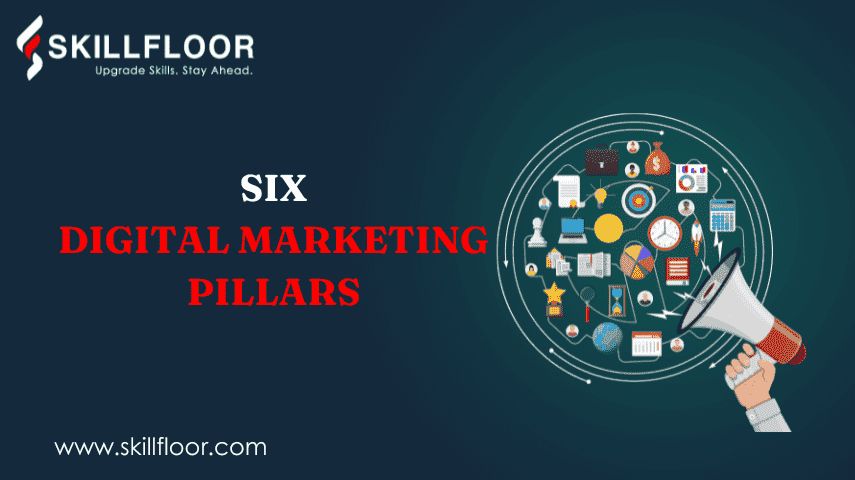Advantages and disadvantages of a digital marketing agency
Explore the benefits and drawbacks of hiring a digital marketing agency for online promotion. Gain insights into expertise, cost-effectiveness, strategic planning, and potential challenges like loss of control and confidentiality concerns.

Businesses frequently go to digital marketing organizations in the fast-paced digital world to help them manage the complexity of Internet promotion. These organizations are experts at developing and implementing all-encompassing digital strategies that improve a business's online visibility. But hiring a digital marketing agency has benefits and drawbacks just like any other business service.
What is a digital marketing agency?
A digital marketing agency is a specialized firm that assists businesses in promoting their products or services through online channels. These agencies provide a range of services, including social media management, search engine optimization (SEO), content creation, and online advertising. With expertise in digital platforms, they help clients establish and enhance their online presence, engage with target audiences, and achieve marketing objectives in the digital space.
How does a digital marketing agency work?

A digital marketing agency is a specialized service provider that assists businesses in promoting their products, services, or brand through online channels. These agencies employ a range of strategies and tactics to help clients achieve their marketing goals in the digital space. Here's an overview of how a digital marketing agency typically works:
1. Client Consultation
The process usually begins with a client consultation. During this phase, the agency works closely with the client to understand their business objectives, target audience, current marketing strategies, and overall goals. This collaboration is crucial for tailoring a digital marketing plan that aligns with the client's specific needs.
2. Market Research
Digital marketing agencies conduct thorough market research to identify industry trends, competitor strategies, and potential opportunities. This research helps in developing a strategy that stands out in a crowded online space.
3. Strategy Development
Based on the client's objectives and market insights, the agency formulates a comprehensive digital marketing strategy. This strategy outlines the platforms and channels to be used, the types of content to be created, the target audience, and the specific goals (e.g., brand awareness, lead generation, sales).
4. Campaign Planning
Once the strategy is in place, the agency develops detailed campaign plans. This includes the creation of content calendars, advertising schedules, and a budget allocation for paid campaigns. Campaigns may involve a combination of tactics such as search engine optimization (SEO), social media marketing, email marketing, content marketing, and paid advertising.
5. Content Creation
Content is a central component of digital marketing. Agencies often create various types of content, including blog posts, articles, social media posts, videos, and graphics. This content is tailored to engage the target audience and align with the overall marketing strategy.
6. Implementation
With the strategy and content ready, the agency implements digital marketing campaigns across selected platforms. This may involve launching advertisements, optimizing website content for search engines, managing social media accounts, and executing email marketing campaigns.
7. Monitoring and Analytics
Digital marketing agencies use analytics tools to monitor the performance of campaigns in real-time. They track metrics such as website traffic, conversion rates, engagement, and return on investment (ROI). Continuous monitoring allows for data-driven decision-making and the optimization of campaigns for better results.
Advantages of a digital marketing agency
Businesses need the assistance of digital marketing organizations to thrive in the variable and complex world of online promotion. The following are the main benefits of working with a digital marketing agency
1. Expertise and Specialization
Digital marketing agencies consist of professionals with specialized skills in various aspects of online marketing, including SEO, social media management, content creation, and advertising. By partnering with an agency, businesses gain access to a team of experts who stay abreast of industry trends and best practices.
2. Cost-Effective
Hiring and training an in-house digital marketing team can be costly and time-consuming. Digital marketing agencies provide a cost-effective solution as businesses can access a diverse skill set without the overhead costs associated with maintaining an internal team. Agencies often offer scalable services, allowing businesses to adjust their marketing efforts based on their budget and goals.
3. Access to Cutting-Edge Technology
Digital marketing tools and technologies are continually evolving. Agencies invest in the latest software and analytics tools to enhance their clients' campaigns. Businesses benefit from access to state-of-the-art technology without the need to make individual investments or worry about keeping up with the rapid pace of technological advancements.
4. Strategic Insights and Planning
Digital marketing agencies bring a strategic approach to campaigns. They conduct thorough research, analyze market trends, and create data-driven strategies to help businesses achieve their objectives. This strategic perspective ensures that marketing efforts align with broader business goals and adapt to changes in the competitive landscape.
5. Time Efficiency
Running a successful digital marketing campaign requires time and dedication. By outsourcing these tasks to a digital marketing agency, businesses can focus on their core competencies while leaving the marketing efforts in the hands of experts. This allows for greater efficiency and productivity in the overall business operations.
Disadvantages of a digital marketing agency
Lack of Full Control
When businesses opt for a digital marketing agency, they delegate a significant portion of their marketing efforts to an external entity. This may result in a perceived loss of control over the strategic decision-making process. The agency, while acting in the best interest of the client, might not align perfectly with the client's vision or priorities.
Dependency on External Expertise
Digital marketing agencies are hired for their expertise, but this reliance on external professionals can be a double-edged sword. Businesses may become overly dependent on the agency for understanding and navigating the dynamic digital landscape. This can limit in-house learning and adaptation, hindering the development of internal marketing capabilities.
Confidentiality and Security Concerns
Engaging a digital marketing agency involves sharing sensitive business information. While agencies take measures to ensure data security, there's always a risk of confidentiality breaches. Businesses need to carefully vet the security protocols of the agency to mitigate potential risks associated with the handling of proprietary information.
Cost Considerations
Hiring a digital marketing agency comes with a financial commitment. The costs associated with agency fees, campaign execution, and any additional services may not always align with the budget constraints of every business. Businesses must assess the cost-effectiveness of outsourcing compared to building an in-house marketing team.
Communication Challenges
Effective communication is paramount for successful collaboration. However, communication challenges can arise due to differences in time zones, language barriers, or a lack of clear channels. Miscommunication may lead to misunderstandings about goals, expectations, or the overall marketing strategy.
Businesses can gain access to cutting-edge technology, cost-effective solutions, and expertise by collaborating with a digital marketing firm. It is important to carefully handle obstacles such as a perceived loss of control, reliance on outside experts, confidentiality issues, financial concerns, and communication difficulties. To make decisions that are in line with their unique needs and objectives, businesses must balance the benefits and drawbacks.






























































